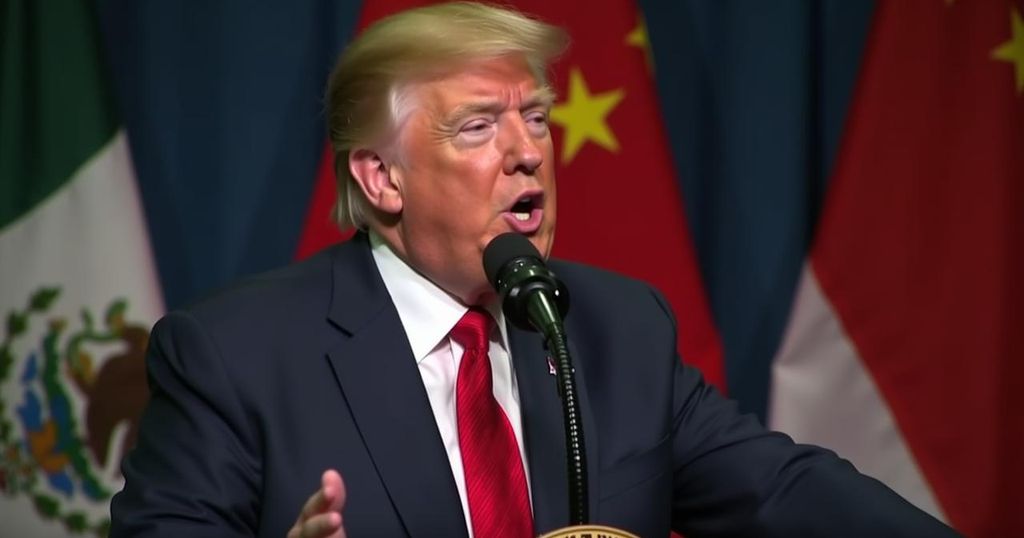Trump Outlines Plans for Trade Deal Renegotiation
Former President Donald Trump has outlined plans to renegotiate international trade agreements, claiming the U.S. has been unfairly treated by Mexico, China, Canada, and the European Union. He aims to enhance the USMCA, proposing significant tariffs on Chinese imports and advocating for better trade terms to support domestic job growth, particularly in the automotive industry.
Former President Donald Trump recently expressed his intent to renegotiate international trade agreements should he attain re-election in November. During an interview on “Sunday Morning Futures,” he proclaimed that the United States has been unfairly treated in trade matters by countries such as Mexico, China, Canada, and the European Union. Trump emphasized that his business acumen allows him to approach trade negotiations effectively, revealing that he secured a clause permitting him to renegotiate the U.S.-Mexico-Canada Agreement (USMCA). In his remarks, Trump reiterated his position on trade with Mexico and China, detailing his proposal to establish a new USMCA aimed at generating domestic job growth and revitalizing the automotive sector. He suggested imposing a 200% tariff on all Chinese automotive imports from Mexico, arguing that this would render such imports uncompetitive in the United States. Trump reiterated the significance of the automotive parts market, highlighting Mexico’s growing importance as a supplier in the industry. He recounted his efforts to negotiate favorable terms in previous agreements, underscoring his belief that revisions are essential for better outcomes. Furthermore, he criticized the original North American Free Trade Agreement (NAFTA), labeling it a detrimental deal fraught with errors and oversights that had remained uncorrected for decades, stressing his commitment to rectify these issues. Trump also reflected on his administration’s past trade negotiations, asserting he was able to secure beneficial agreements with Japan and South Korea, while also exerting economic pressure on countries such as Iran and China concerning oil trade. Overall, Trump’s statements reflect a strong desire to recalibrate U.S. trade relationships to favor American interests, focusing heavily on the automotive industry and existing agreements that he believes require urgent reassessment.
This discussion around international trade, specifically concerning the U.S., centers on the impact of trade agreements on domestic industries and jobs. The U.S.-Mexico-Canada Agreement (USMCA), which replaced NAFTA, was designed to address many issues raised by critics of previous agreements. Trump’s desire to renegotiate this agreement stems from a belief that prior treaties have not adequately supported U.S. manufacturing and economic growth, particularly in the automotive sector. He also places significant emphasis on how trade policies affect American workers and industries, advocating for stronger terms that promote domestic production.
In conclusion, Donald Trump’s recent comments outline a clear strategy focused on renegotiating trade agreements that he believes have historically disadvantaged the United States. By targeting countries like Mexico and China and emphasizing the significance of the automotive industry, Trump aims to reshape trade dynamics to create a more favorable environment for American jobs and businesses. His reflections on previous agreements and assertive stance on tariffs signal a robust approach to international trade should he return to office.
Original Source: www.foxnews.com




Post Comment